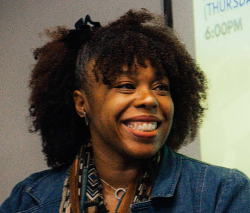Successful Strategies to turn Out-of-Sync Stakeholders
into Cohesive Collaborators
SECOND EDITION
By Alex Barra, Beza Woda and JD Johnson
San Francisco and Dallas, USA
Abstract
Have you sat in a project meeting with business and technical teams and felt everyone was speaking a different language, creating confusion on goals, requirements, and the path forward?
Or have you watched a completed software solution demo that the business team felt didn’t meet their actual needs, causing rifts between business and IT?
Or participated in a Steering Committee session spanning multiple functions and teams with too many voices in the rooms, generating swirl and a lack of clear direction?
The truth is, different stakeholder groups have different needs and ways of working and communicating — and your approach to creating alignment needs to take that into consideration as according to Geneca (Blog, 2017) of dev teams spend half their time on rework.
Informed by extensive experiences as project managers during consulting engagements and the countless lessons learned, we will share our “Art of Translation” approach that is applicable across industries and company sizes. By integrating change management principles with emotional intelligence (EQ), this unique approach helps build alignment across all stakeholder levels during the discovery phase by validating alignment of project end goals early and often and providing strategies throughout the process to keep true the project’s north star. This translator approach will reduce the unproductive spin and prevent out-of-sync project deliverables.
The Learning Objectives for this paper are to enable project managers to:
- Identify the red flags that business and technical teams are lost in translation early
- Use powerful questions to coach stakeholders when project goals don’t seem clear to all parties
- Recognize when to bring in other stakeholders to ensure the right people are present for the right conversations
- Pinpoint the learning styles of your audience to ensure business needs are articulated into technical requirements
Setting the Stage: Foreword by JD Johnson
When I started in this world of project management, it was really by accident. I wasn’t a Project Manager; I wasn’t trained in any methodologies. I was a language major making some money to pay for my degree. I just saw problems that needed to be solved in the organization I was working in, and I realized that just complaining about those problems didn’t build any traction or get those issues resolved. I observed that leadership actually listened and made things happen when you were able to state the nature of the issue clearly, showed the cost/benefit analysis of why it was an issue and how you had a solution that would save money/create revenue or improve efficiencies or productivity and had, at the very least, a high-level plan to go after your resolution. So, I built my first business case and project plan, not even knowing that’s what they were called and shared it with my manager who then put me in a place to share it with my leadership team who, lo and behold, approved it.
In one of my incarnations, I was working as a Data analyst in the organization, my leader had brought in a Six Sigma internal trainer and offered me a spot. From there, I acquired my yellow belt, and I became fascinated by the concept of a framework to create and execute project plans. From a young age, my father instilled a sense of curiosity and a love of learning so, I dug into this new world of project management and used the free training offered to dive deeper into different frameworks. Working in an organization that felt like it was in perpetual restructuring, my one constant was looking at problems that I encountered through the lens of problem solving and used a structured approach to frame the issues and develop an approach to resolve it.
More…
To read entire paper, click here
Editor’s note: Second Editions are previously published papers that have continued relevance in today’s project management world, or which were originally published in conference proceedings or in a language other than English. Original publication acknowledged; authors retain copyright. This paper was originally presented at the 15th UT Dallas PM Symposium in May 2023. It is republished here with the permission of the author and conference organizers.
How to cite this paper: Barra, A., Woda, B., Johnson, J.D. (2024). Lost in Translation? Successful Strategies to turn Out-of-Sync Stakeholders into Cohesive Collaborators; presented at the 15th University of Texas at Dallas Project Management Symposium in Richardson, TX, USA in May 2023; republished in the PM World Journal, Vol. XIII, Issue I, January 2024. Available online at https://pmworldlibrary.net/wp-content/uploads/2024/01/pmwj137-Jan2024-Barra-Woda-Johnson-Lost-in-Translation-2nd-ed-.pdf
About the Authors

Alex Barra
San Francisco, CA, USA
![]()
Alex Barra is a Change Management Consultant based in San Francisco who has 9+ years of experience in human resources & people consulting in various industries. Specializing in technology change projects, digital transformation, and culture change, they enjoy riving into any change no matter how big or small. Alex holds a bachelor’s degree in Industrial and Labor Relations from Cornell University.

Beza Woda
Dallas, TX, USA
![]()
Beza Woda is a Dallas native that holds 6+ years of project and change management experience. With a diverse background in different sized companies (pre-revenue Startups to Fortune 500 companies) and across industries (tech, retail and consumer packaged goods), she relies on cultivating strong relationships, strong communication, and grit to simplify even the most complex issues. Her advice to clients, business owners, and team leaders is to invest in building a culture where change is a constant.

JD Johnson
San Francisco, CA, USA
![]()
JD Johnson is a consultant with more than 10 years of experience leading projects and facilitating change through the implementation of operational and technical projects. She has a proven track record of utilizing her strong analytical skills to identify insights that drive the formation of inventive strategies to resolve underlying root cause issues. JD’s projects consistently exceed expectations due to her attention to building lasting relationships; structured, yet creative problem-solving approach; flexible and clear communication style. She can be contacted at jd.johnson@propeller.com









